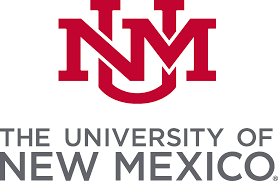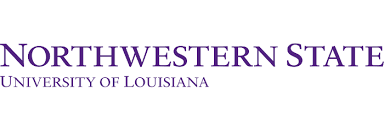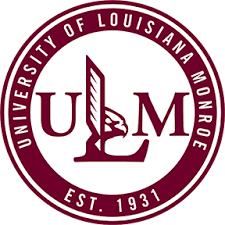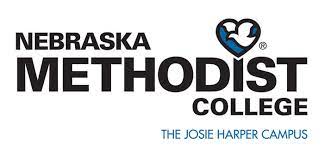Bringing in higher pay and moving into a management position is what earning a Bachelor’s in Radiation Therapy can do for your career. Read on for online radiation therapy schools.
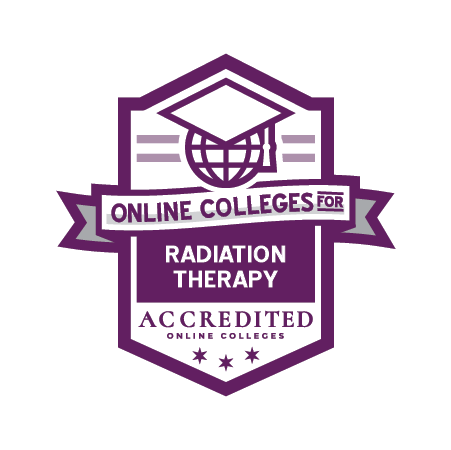
While earning your radiation therapy associate’s degree online is a significant accomplishment, employers are going to want to see that you’re invested in your future if you’re looking to manage other employees or departments. Can you get a radiation therapy degree online? Selecting one of our top 25 online colleges for radiation therapy can really make you stand out from others while saving you a lot of money.
What Will You Learn With a Radiation Therapist Degree Online?
As you may expect, while completing your Bachelor’s in Radiologic Science, you’re going to get more in-depth knowledge of the field. Some radiation therapist programs online encourage their students to classes that lead to eligibility for sitting for certification examinations in:
Featured Programs
- medical sonography
- magnetic resonance imaging
- computed tomography
- cardiac intervention
With an additional certification, you’ll become a more valuable employee to your organization.
Many of the radiation therapy program online on this list either solely focus on management and business or include these topics within the degree’s curriculum. Management and business classes are often included in these degrees. Many radiologic technologists who decide to go back to school to finish their bachelor’s degree do so to move into a management job. Classes you may take while earning your bachelor’s degree will likely cover:
- management principles and strategies
- human resources for health care
- administration
- quality management
This list of online radiation therapy schools does include a few master’s degrees, which will focus primarily on developing research and teaching skills. Earning an MS in Radiologic Science may allow you to become a radiologist assistant or work in radiation therapy centers. They are responsible to take histories of radiology patients. They have other advanced duties under the supervision of a physician radiologist.
See Also: 26 Accredited Online Colleges For Respiratory Therapy Degree Programs
What Are the Best Colleges for Radiation Therapy Degrees?
Accredited Online College uses the most recent data from the Department of Education’s National Center for Education Statistics. Each accredited radiation therapy program online is scored individually. It’s then compared to all other universities offering that degree to determine the final score you see by each ranking. Accredited Online College considers:
- affordability
- student-to-faculty ratio
- number of programs offered on-campus and online
For more information, see our methodology page.
Check out these Radiation Therapist Schools Online!
See Also: 30 Accredited Online Colleges in Healthcare Management
1. University of Iowa
The Radiation Technologist to BS in Radiation Science program at the University of Iowa comes in at the top of our list. This radiation therapy program provides the best bang for your buck while being backed by a university system known for its high educational standards. If admitted into this program, you can choose a concentration in:
- cardiovascular interventional
- computed tomography
- magnetic resonance imaging
- breast imaging
- multi-modality plan
There isn’t a clinical internship experience requirement. The program is designed for practicing radiation technologists . Those wanting to sit for a higher radiation technologist certification will need to find their own opportunities to meet the internship experience required. This program does partner with various medical institutions across the state from which an internship can be arranged in:
- diagnostic medical sonography
- magnetic resonance imaging
- computed tomography
- cardiac interventional could
Learn more about the Radiation Therapy Program at University of Iowa here.
See Also: 10 Tips for Maximizing Your Learning Experience in Online College
2. Siena Heights University
Radiation therapists can earn that much-coveted bachelor’s degree. They can explore different subjects through a minor with the Bachelor of Applied Science in Radiologic Technology degree from Siena Heights University. Selecting a major can give you specialized knowledge in subjects such as:
- health care management
- management
- others
These are readily applicable skills that practicing radiation therapists can implement immediately.
Students have a few ways in which they can meet the minimum admission requirements for this program. The first way is for applicants to have completed an Associate of Applied Science in Radiologic Technology or other associate’s degree. The second admission route is for applicants to have:
- hospital-based training
- be ARRT registered
- have two years of radiation science work experience
Learn more about the accredited radiologic technology program at Siena Heights University here.
3. University of Missouri
The Bachelor of Health Science in Clinical and Diagnostic Sciences with an emphasis in Radiologic Science from the University of Missouri aims to develop:
- future radiology teachers
- knowledgeable and proficient radiology technicians
This degree will also train students to be health system managers in areas as diverse as:
- patient care
- research
- sales
- marketing
Certified radiologic technologists are eligible to apply for admittance into this program.
The typical transfer student into this accredited online program requires only around 30 credit hours of coursework to complete this degree. Students can expect the radiation therapy program to cost a total of $12,502. Coursework to finish this online degree will cover areas such as:
- clinical ethics
- MRI physics and procedures
- radiologic pharmacology
Learn more about Accredited Online Programs For Radiation Therapy at University of Missouri here.
4. Indiana University- Purdue University Indianapolis
Wanting to add another credential to your skillset by learning:
- radiography
- nuclear medicine
- diagnostic medical sonography
- radiation therapy
If so, then the BS in Medical Imaging Technology can help you reach your goals as either a full- or part-time student. You will develop critical thinking and develop problem-solving skills in this radiation therapist online degree. To be eligible for admission into this fully online program, applicants are expected to have a certification in:
- radiography
- radiation therapy
- nuclear medicine
- diagnostic medical sonography
- echocardiography
Additional certification students admitted into this program can expect to earn depends on the specialty selected. On average, students can complete an additional 30 credit hours of coursework before graduating with their degree. Six credit hours spent in research. Students in this program will take one class worth three credit hours in each of the following areas:
- principles
- procedures
- anatomy and pathology
Learn more about the Accredited Radiologic Technology Program at Indiana University – Purdue University Indianapolis here.
5. University of New Mexico
Completing a degree while holding a full-time job can be both physically and mentally draining. The University of New Mexico understands the flexibility needed for working professionals to reach their educational goals. It created the BS in Radiologic Science for working radiologic technologists. Eligible applicants to this radiation therapy program will already hold a certification in one of the radiology fields detailed on the school’s website.
Upon admission into this program, students will select a concentration in either:
- nuclear medicine
- medical imaging
Individuals who choose the medical imaging concentration may further focus their studies with an emphasis on computed tomography or magnetic resonance imaging. Applicants to this online learning program are also expected to have a minimum 2.5 cumulative GPA in previous coursework. Preference is given to those with a GPA greater than 3.2.
Learn more about the accredited radiologic technology program at University of New Mexico here.
6. Weber State University
Weber State University’s BS and Master’s in Radiologic Sciences degrees was created to:
- give tools for advancement in employment
- be given more responsibility
- increase pay
The school offers several on-campus bachelor’s degrees in:
- advanced radiologic sciences
- diagnostic medical sonography
- nuclear medicine
- radiation therapy
The online bachelor’s is a completion program for those who have already obtained certification.
Online students can earn a BS in Advanced Radiologic Sciences after coordinating with school advisors. They can work with you to develop an independent study program that can meet your credit requirements to graduate. The Master’s in Radiologic Sciences allows students to choose to focus their studies on:
- innovation and improvement
- cardiac specialty
- radiologist assistance
The MS program aims to advance the skillset of those with a bachelor’s degree by building management and research experience.
Learn more about the Radiation Therapy Program at Weber State University here.
7. Northwestern State University of Louisiana
Northwestern State University of Louisiana has a top BS in Radiologic Science program. It is specifically tailored to students’ needs and experience. The academic advisors who are practicing radiologic technologists created the program. The degree-completion program is 44 credit hours. Students have the option of enrolling in radiologic science courses without enrolling in the BS program.
On average, students enrolled in the BS in Radiologic Science completion program take between 18 and 24 months to graduate. The time to complete the degree depends on the course load that students can manage, with students able to choose one to five courses per semester. The school also offers a Master of Science in Radiologic Sciences with available concentrations in:
- radiologic sciences education
- administration
Learn more about Accredited Online Programs For Radiation Therapy at Northwestern State University of Louisiana here.
8. The Ohio State University
The AS to BS Completion Degree in Radiologic Sciences program from The Ohio State University is a newly created program. It provides students a route for personal and professional growth. Students will gain deeper knowledge and understanding of the radiologic sciences through their studies. They will also take classes that will teach subjects like:
- management principles and strategies
- human resources for health care
- administration
- quality management
Students will be prepared to take the Certified Radiology Administrator exam. This credential will help practicing radiologic technologists move into management positions within their organizations. To complete the AS to BS program, students will have to pass a capstone project in which they improve their workplace. This project will give students working knowledge of what it will be like to step into a management or administration position.
Learn more about Accredited Online Programs For Radiation Therapy at The Ohio State University here.
9. Morehead State University
You may not interested in gaining more knowledge in the radiologic sciences. You may want a degree that further prepares you for business and leadership positions. The BS in Leadership in Medical Imaging from Morehead State University is the degree to check out. This program is only for those already certified in a radiologic science discipline. The program lasts two years. Students in this program will learn about a wide range of business and management topics including:
- fiscal management in healthcare
- program planning
- evaluation and assessment
- health care law and policy
Admission into this online program is competitive. The school only accepts a limited number of students each year. Basic requirements include the completion of prerequisite coursework in:
- writing
- mathematics
- speech communication
- computer literacy
You can find out if you have already met the admission criteria by requesting that one of the school’s admission counselors review your transcripts.
Learn more the Radiation Therapy Program at Morehead State University here.
10. Midwestern State University
Self-discipline and good time-management skills are essential to online education. Midwestern State University is there to help you develop such skills when you enroll in its BS in Radiologic Sciences program. The school’s website is very clear in pointing out that the program is not meant for those without preexisting radiologic science certifications. Gaining certifications is not the focus of the program. With that being said, there are opportunities with this degree to take coursework that qualifies you for more advanced certifications in radiologic science.
Every student enrolled in the BS program will take the same seven professional core courses. Then they will choose an additional four elective courses. Classes are held in 15-week semester modules, with summer sessions lasting ten weeks. Once you’ve earned your BS in Radiologic Sciences degree, you may want to consider applying to the school’s Master of Science in Radiologic Sciences program.
Learn more about the Radiation Therapy Program at Midwestern State University here.
11. The University of Louisiana at Monroe
The University of Louisiana at Monroe’s Department of Radiologic Technology has over three decades of experience educating radiologic technologists. It’s fine-tuned the process for graduating competent and successful students. ULM understands that students in this field who decide to go back for more education are looking to obtain a management position or increase their knowledge in imaging procedures. This is why this program teaches just that.
Applicants who have an ARRT certification are awarded 38 credit hours upon enrollment in the BS in Radiologic Technology program. In addition, the school requires that students have:
- 54 credit hours of general education
- 11 credit hours of radiologic technology courses
- 14 credit hours of radiologic-technology-guided electives
- 3-credit-hour university capstone course
Learn more about the Radiation Therapy Program at University of Louisiana at Monroe here.
12. Southern Illinois University
Those wanting to go back to school so that they can manage health departments or become a radiologic science educator should learn what Southern Illinois University’s BS in Radiologic Science Management/Education has to offer. Through this program, students will take 31 credit hours of management- and education-specific classes. They will also complete any general education requirements that they still need to finish.
The school has dedicated an entire team to ensure that its students have the support and mentorship needed to be successful in their studies consisting of:
- professors
- teaching assistants
- administrative staff
Like many of the other programs on this list, admission is limited to those with an imaging science credential. The program accepts admission applications on a rolling basis. If you’re interested, start your application today!
Learn more about the Radiation Therapy Program at Southern Illinois University Carbondale here.
13. Concordia University Wisconsin
The BS in Radiologic Technology from Concordia University allows transfer students to bring in up to 84 credit hours of previously earned college credit toward their degree. Those who have the maximum amount of transfer credits will only need to complete an additional 36 credit hours of work to graduate. Concordia’s degree-completion program does require that applicants have at least 63 credit hours of transfer credit. Depending on the number of transfer credits you bring in, you could be walking down the aisle to receive your BS in Radiologic Technology in less than a year and a half of study!
The school implements a Christ-centered educational model. Classes are held every six to eight weeks. The program is 120 credit hours in duration. Each credit hour of education costing students approximately $526. For those who have the maximum number of transfer credits, earning your bachelor’s degree could only cost you $18,936.
Learn more about the Radiation Therapy Programs at Concordia University Wisconsin here.
14. East Tennessee State University
Learning how to manage people is essential for any position of leadership. The online Bachelor’s in Radiologic Sciences from East Tennessee State University is worth checking out. If you have earned an Associate of Applied Science, this program may save both time and money. You can transfer more credit hours than many other four-year universities. Students accepted into this program can expect to spend their time studying topics like:
- healthcare management
- patient information and management
- health care law and compliance
What are Online Classes for Radiation Therapist?
- Introduction to Allied Health
- Foundations in Radiological Technology
- Information Management for Allied Health Professionals
The school’s E-tuition rate is comparable to its in-state tuition rates, with E-tuition costing students $483 per credit hour. The savings become apparent when you look at the on-campus out-of-state tuition rates, which run $1,183 per credit hour. Students who have earned an AS or AAS in Radiologic Sciences are eligible to apply for admission into this program.
Learn more about the Radiation Therapy Program at East Tennessee State University here.
15. Bluefield State College
Individuals located in West Virginia may find their ideal BS in Imaging Science at Bluefield State College. This degree program follows a hybrid format that does require some in-person coursework. Many of the classes are offered entirely online. The program was created to train students to step into new professional roles as:
- chief technologists
- department managers
- instructors of radiology programs
While completing this BS in Imaging Science, students may take classes such as:
- Diversity & Ethics in Healthcare
- the U.S. Healthcare System
- Basic Communication
- Healthcare Law & Compliance for Allied Health Professionals
Applicants to this program must have maintained a cumulative GPA of at least 2.5 throughout their associate-level coursework.
Learn more about the Radiation Therapy Programs at Bluefield State College here.
16. Nebraska Methodist College of Nursing & Allied Health
The Bachelor’s in Imaging Science from Nebraska Methodist College of Nursing & Allied Health is a 122-credit-hour program. It is offered in both an online, degree-completion format for those who are ARRT certified as well as an on-campus, four-year option. The BS degree-completion program is estimated to take students between 18 and 24 months to complete. It depends on the number of transfer credits they have earned. Students enrolled in either degree format are able to choose a minor in either:
- Spanish for Healthcare Professionals
- Healthcare Sign Language
Students willing and able to attend classes on-campus and who are not already ARRT certified can take advantage of the school’s dual-degree option. This enables them to work toward their associate’s and bachelor’s degrees in a combined program. The dual-degree program also qualifies and prepares students to sit for the ARRT examination.
Learn more about the Radiation Therapy Degree Program at Nebraska Methodist College of Nursing & Allied Health here.
17. Oregon Institute of Technology
The Oregon Institute of Technology offers two degrees for radiologic technologists who want to earn their degree:
- Bachelor of Science in Radiologic Science
- Bachelor of Science in Health Care Management
The BS in Radiologic Science builds upon prior certification foundations. There are additional studies in radiologic science, featuring a business application focus. Alternatively, the BS in Health Care Management has a focus on teaching management and business principles.
Students enrolled in either of these programs are also able to enroll in Oregon Tech’s MRI certificate program. The certificate program aims to demystify MRI science and consists of six courses for a total of 15 credit hours of study. While earning the BS degree, students will take:
- 46 credit hours of professional courses
- 64 credit hours of general education courses
Learn more about Accredited Online Programs For Radiation Therapy at Oregon Institute of Technology here.
18. Missouri Southern State University
The Bachelor’s in Health Science Radiologic Technology at Missouri Southern State University is a 124-credit-hour program designed to teach students:
- critical thinking
- leadership
- communication
- information skills
Students accepted into this program will take 18 credit hours of health-science-core classes. This may cover topics in:
- elementary statistics
- environmental health and safety
- theory
- practice teaching health science
There are multiple classes to choose from in the health science core. You can build your curriculum around subjects you’re particularly interested in learning.
In order to graduate, students must meet the school’s required 37 credit hours of general education and 64 credit hours of radiology. Many can be transferred into the program if you’re ARRT certified. Additionally, students are given five credit hours of electives to explore topics they are most drawn toward.
Learn more about the Radiation Therapy Degree at Missouri Southern State University here.
19. University of Southern Indiana
For over a decade, every student who has completed the University of Southern Indiana’s radiology program has found employment within 12 months of graduation. This is an impressive statistic not shared by many other schools. In this program, you’ll be taught by professors with many years of experience working in the field of radiology. The school offers small class sizes. This gives learners access to one-on-one attention and mentorship.
USI’s Bachelor of Science in Radiologic and Imaging Sciences degree-completion program follows a traditional 120-credit-hour curriculum. The school requires that its students complete at least 30 credit hours at the University of Southern Indiana. The school also expects its students to earn a C or better in all radiologic and imaging science courses. They must also maintain at least a 2.0 cumulative GPA throughout the duration of the BS program.
Learn more about Accredited Online Programs For Radiation Therapy at University of Southern Indiana here.
20. Georgia Southern University
Georgia Southern University is sure to have a program to suit your needs as a busy radiologic technologist. It has a clinical and non-clinical BS in Radiologic Science. Individuals enrolled in the clinical track will explore imaging modalities such as:
- CT
- MRI
- mammography
The mammography concentration is only available for radiographers. The majority of the coursework can be completed online. The required clinical experience can be completed in your local community. This will allow you to sit for the certification exam.
The non-clinical track is a program that focuses on:
- teaching students leadership
- management
- technical communication skills
This program is entirely online and does not feature a clinical requirement. Both the clinical and non-clinical BS programs consist of 129 credit hours. Around half of the credits dedicated to the core curriculum and the other half to the major.
Learn more about Radiation Therapy Programs at Georgia Southern University Armstrong Campus here.
Frequently Asked Questions
Online Radiation Therapist Schools
What Requirements Will You Need to Meet to Apply to Radiation Therapy Degrees Online?
If you’ve taken the time to read through our top 25 online colleges for radiation therapy, then you’ve likely come away with the fact that many of the programs require their applicants to have already earned a certification in radiation science or imaging science. The type of certification needed can range from:
- diagnostic medical sonography
- magnetic resonance imaging
- computed tomography
- cardiac interventional
- nuclear medicine
Some individuals who hold a radiologic science certification and who have not completed an associate’s degree from an accredited college will not be eligible to apply to some of the programs on this list. Almost all radiologic technologist programs for students without prior certification require some form of on-campus classes and clinical experience.
Additionally, each school has specific prerequisite coursework that applicants must complete before admission into the program. If you don’t have all of the prerequisite coursework completed, then the program you’re applying to may require you to take the missing classes before admission. Most schools on this list will expect their applicants to have maintained a minimum cumulative GPA of 2.5 while earning their associate’s degree. This requirement can vary depending on the program.
While some of the programs on this list do not mention requiring their applicants to be currently employed as radiologic technologists, others explicitly list this for admission. You’ll need to check the website for the program you’re interested in to find out if this is a listed requirement for admission.
Those wanting to enroll in a Master’s of Radiologic Science program will need to meet all of the above criteria and have earned a bachelor’s degree in health sciences. The bachelor’s degree doesn’t necessarily have to be in an imaging or radiologic sciences field. Some Bachelor’s in Nursing degrees are also accepted. All applicants to MRS programs are required to be credentialed as radiologic technologists.
How Much Can I Make With a Radiation Therapy Degree?
The future financial payoff can be the determining factor for further education. Altruism and the ability to help more people in your career may be a motivating factor for going back to school. Without careful consideration of the finances, you could land yourself in a worse financial position.
Working technologists are estimated to earn a median annual salary of $60,510. Most of the radiologic technologists currently employed in the U.S. workforce have an associate’s degree. Nuclear medicine technologists, after earning certification, take home a median income of $77,950 per year.
Earning a bachelor’s degree can allow radiologic technologists the ability to move into management and leadership roles. Medical and health services managers are reported to earn a median salary of $100,980 annually. This is a significant increase from salaries earned by radiologic technologists not working in management positions. Many of the programs on this list won’t require more than a $30,000 investment to acquire a BS degree. It appears that earning a bachelor’s to go into a management position in radiologic technology is a wise investment for the future.
Individuals pursuing a Master’s in Radiologic Science are often looking to become either radiology assistants or radiologic science educators. Radiology assistants are estimated to earn a robust salary of just under $100,000 per year. Postsecondary health specialty teachers make around $97,320. You can expect a Master’s in Radiologic Science to cost anywhere from $30,000 to $60,000 per year. The master’s degree is another great investment for radiologic technologists. They can expect to start seeing a return on their educational investment in one to two years.
If you’re interested in pursuing higher education, then you should check out the Top Easy Accredited Online Master’s Programs and the 30 Top Accredited Online Colleges With Low Tuition!





